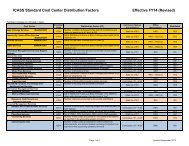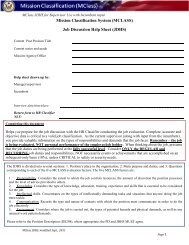Local Employment Policy Handbook - ICASS
Local Employment Policy Handbook - ICASS
Local Employment Policy Handbook - ICASS
You also want an ePaper? Increase the reach of your titles
YUMPU automatically turns print PDFs into web optimized ePapers that Google loves.
RESIDENCY STATUS AND DETERMINING COMPENSATION USING<br />
THE LOCAL EMPLOYMENT COMPENSATION WORKSHEET<br />
Compensation -- pay and benefits provided to individuals employed under PSA authority – is determined<br />
by the individual’s residency status. HR must complete the most recent version of the <strong>Local</strong> <strong>Employment</strong><br />
Compensation Worksheet as part of the employee hiring process.<br />
The <strong>Local</strong> <strong>Employment</strong> Compensation Worksheet is available on the HR/OE website.<br />
The Human Resources Officer (HRO) or Management Officer (absent the HRO), in consultation with<br />
HR/OE, if needed, determines the residency status of an individual selected for employment at the<br />
Mission by completing the <strong>Local</strong> <strong>Employment</strong> Compensation Worksheet. HR must complete a<br />
Compensation Worksheet for every individual recruited locally (including Appointment Eligible Family<br />
Members, other EFMs, and Members of Household). HR must carefully decide and document the<br />
residency status. Once the individual officially enters on duty, HR may not change the residency status.<br />
There is no exception to this policy.<br />
Dual Nationals: If an individual has dual citizenship and one of the citizenships is US, the US<br />
Government always recognizes the US citizenship first.<br />
Following is an overview of residency-based compensation.<br />
A. Ordinarily Resident (OR) – The applicant is in the host country as a citizen, legal permanent resident,<br />
or holder of a non-Diplomatic work visa, or work permit, or residency permit, or both a work visa/permit<br />
and a residency permit. This person comes under local labor law. This category will include most<br />
Members of Household and all non-US Citizen Eligible Family Members who are in their country of<br />
citizenship.<br />
Ordinarily Residents are always paid under the Mission’s <strong>Local</strong> Compensation Plan.<br />
B. Not Ordinarily Resident (NOR) – The applicant is a Appointment Eligible Family Member (AEFM) or<br />
EFM on the travel orders of a direct hire Foreign Service, Civil Service, or uniformed service member<br />
permanently assigned to the Mission and under Chief of Mission authority, or at an Office of the<br />
American Institute of Taiwan. This person has a diplomatic visa, does not come under local labor law,<br />
and thus does not need a work permit. Non-US Citizen EFMs must have a US Social Security Number<br />
and may not be in their country of citizenship to qualify as NOR. This category may also include<br />
Members of Household with US Social Security Numbers who are not on the travel orders, but who do<br />
not need a work permit or visa work stamp to legally work in country.<br />
Not Ordinarily Residents (NOR) are always paid under an American compensation plan. All NORs<br />
must have a US Social Security Number for compensation under an American pay plan. If the individual<br />
is unable to get a US Social Security number, HR may not hire as a NOR.



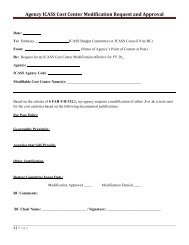
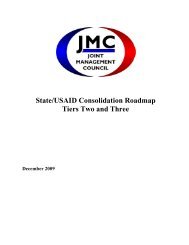
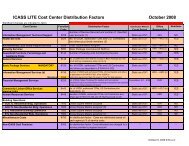
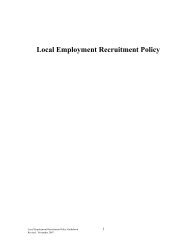
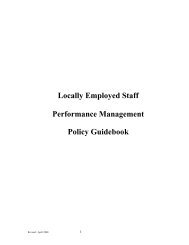
![Appendix D Reviewer Requirements Checklist GDB 2[1]. - ICASS](https://img.yumpu.com/37563692/1/190x245/appendix-d-reviewer-requirements-checklist-gdb-21-icass.jpg?quality=85)
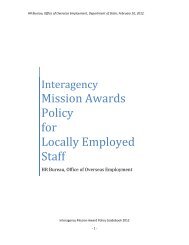
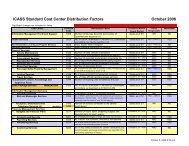

![GPAT for Web[1].ICASS GDB r2.31.00](https://img.yumpu.com/37563643/1/190x245/gpat-for-web1icass-gdb-r23100.jpg?quality=85)

